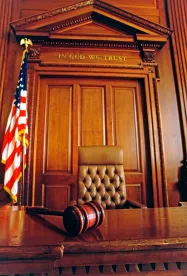The long saga of In re Tobacco Cases II recently produced yet another appellate opinion addressing California’s Unfair Competition Law (“UCL”), False Advertising Law (“FAL”), and the remedies they provide. This time, in In re Tobacco Cases II, 240 Cal. App. 4th 779 (Sept. 28, 2015) (“Tobacco II”), the appellate court considered what “restitution” under the UCL actually means, and how to appropriately calculate it. In doing so, the court provided much needed guidance on these issues and (assuming the decision is affirmed) largely eliminated the “full refund” theory of restitutionary recovery in all but the most extreme UCL and FAL actions.
Although the Tobacco II case has a “tortuous procedural history” (as described by the court of appeal), the central focus of this opinion was the plaintiffs’ claim (as class representatives) that Philip Morris (the maker of Marlboro branded cigarettes) falsely advertised its products when it used the term “lights” and “lowered tar and nicotine” to market its Marlboro Lights cigarettes. Tobacco II, 240 Cal. App. 4th at 784. The plaintiffs claimed that, by using these phrases, the defendant falsely advertised that Marlboro Lights were “less unhealthful” than regular Marlboro cigarettes when, in fact, they were no less dangerous than “full-flavored cigarettes.” Id. After conducting a trial, the judge denied the plaintiffs’ restitution claims because the plaintiffs failed to present the evidence necessary to establish the “difference between what they paid for Marlboro Lights and the value they actually received.” Id. The plaintiffs appealed this decision (as well as other issues relating to the ultimate judgment in the case).
The primary issue on appeal concerned the plaintiffs’ argument that the trial court erred, as a matter of law, in ruling that the only measure of restitution available under a UCL and FAL case is the measure set forth in the case In re Vioxx Class Cases, 180 Cal. App. 4th 116 (2009) (“Vioxx”), namely that plaintiffs are entitled to recover the difference between the price paid for the falsely advertised product and the actual value received. Tobacco II, 240 Cal. App. 4th at 784, 787. More specifically, the plaintiffs argued that the value received by consumers was “immaterial” because the trial court had discretion to order Philip Morris to “make a full refund of their expenditures on Marlboro Lights, or its profits thereon, solely for the purpose of deterrence.” Id. at 791.
In considering the plaintiffs’ argument, the court first examined Vioxx, which noted that “The difference between what the plaintiff paid and the value of what the plaintiff received is a proper measure of restitution…In order to recover under this measure, there must be evidence of the actual value of what the plaintiff received.” Tobacco II, 240 Cal. App. 4th at 791, citing Vioxx, 180 Cal. App. 4th at 131. The plaintiffs argued that the use of the indefinite article “a” meant that other valid measures of restitution could exist beyond the one identified in Vioxx. On this singular point, the court agreed. Tobacco II, 240 Cal. App. 4th at 792. However, the rest of the opinion demonstrated why the plaintiffs’ remaining arguments failed under existing California law.
Although the court agreed that Vioxx does not preclude the possibility of other measures of restitution, the court held that “It remains…that plaintiffs had the burden of proving entitlement to an alternative measure of restitution proper under all the circumstances” and that it was supported by substantial evidence. Id. at 792. The plaintiffs’ full refund theory could not satisfy this test because restitution must focus on what the plaintiffs lost, not what the defendants gained. Id. at 794. Here, because the plaintiffs undeniably obtained some value from purchasing the Marlboro Lights (i.e., they received the cigarettes they wanted to smoke), the appropriate measure of restitution was the same one set forth in Vioxx: the difference between the value the plaintiffs received and what they paid. Since the plaintiffs failed to prove (through admissible evidence) the difference in the price paid and the value received by the consumers, restitution could not be ordered and the trial court correctly denied plaintiffs’ prayer for restitution. Id. at 794-95.
After affirming the trial court, the court of appeal continued to discuss the boundaries of restitution awards under the UCL and FAL. In doing so, the court surveyed California law on restitution and provided some important clarity on these issues.
The court first addressed the role of deterrence under the UCL, finding that, though some cases spoke of the deterrent effect, the primary focus of UCL/FAL restitution has to be making the alleged victims whole, such that the amount awarded must be tied to a measurable loss, and the “imposition of a monetary sanction merely to achieve this deterrent effect” is not permissible. Tobacco II, 240 Cal. App. 4th at 795, citing Day v. AT&T Corp., 63 Cal. App. 4th 325, 339 (1998). Otherwise, a plaintiff could obtain a full refund for even valuable items such as “cars, yachts, and planes” that were falsely advertised even though that false advertising had little effect on the value. Tobacco II, 240 Cal. App. 4th at 802. The court recognized that such a result would be inconsistent with the numerous cases that hold that restitution is “ancillary” to injunctive relief, which remains the “primary form of relief” available under the UCL and FAL. Tobacco II, 240 Cal. App. 4th at 802, citing Clayworth v. Pfizer, Inc., 49 Cal.4th 758, 790 (2010).
The court then addressed the limited situations where “a full refund may be available in a UCL case,” namely where the plaintiffs prove that the “product had no value to them” apart from the false advertisement. Tobacco II, 240 Cal. App. 4th at 795. As an example, the court cited a dietary supplement case where the product falsely claimed to be an aphrodisiac and had “no value apart from that claim.” Id. Since there was no value, a full refund could be appropriate. Otherwise, if there is any value to the product, a full refund is not available under the UCL or FAL. Id. at 796. Here, the court approvingly cited several federal district court decisions that applied Vioxx to hold that total refund recoveries were not available remedies for plaintiffs asserting claims for false advertising. See e.g. In re POM Wonderful LLC, 2014 WL 1225184 (C.D. Cal. Mar. 25, 2014). Since almost every product has at least some value apart from the false advertising, this holding arguably eliminates the full-refund model as a theory of recovery under the UCL and FAL.
The court then proceeded to discuss “disgorgement” of profits as an available remedy under the UCL and FAL. The court reviewed language from other cases suggesting that the UCL allows the disgorgement of illicit profits and held that, in reality, these cases do not hold that disgorgement is available solely for the sake of deterrence. Tobacco II, 240 Cal. App. 4th at 796-97. Instead, the value to the consumer must be considered in fashioning a remedy. Id. (describing the case of Fletcher v. Security Pacific National Bank, 23 Cal. 3d 442 (1979) as a case that permitted a full refund because there was no value to the consumer for the allegedly unfair business practice).
The court then noted that there were two types of disgorgement: restitutionary and non-restitutionary. Under the UCL and FAL, only restitutionary disgorgement is allowed. Resitutionary disgorgement, per the court, must focus on returning the victim to status quo ante, not taking away a defendant’s ill-gotten gains. Thus, “restitution without proof of any loss to any plaintiff cannot be characterized as restitutionary,” and, therefore, any restitution award is necessarily limited to what the plaintiff lost (not what the defendant gained). Id. at 801. In this case, since the plaintiffs failed to provide evidence sufficient to calculate the value they lost through the false advertising of Marlboro Lights, no restitution was available and the trial court properly awarded them $0.
The latest Tobacco II opinion will be a valuable tool for UCL and FAL defendants in California’s courts going forward. By reviewing, harmonizing, and explaining the previous California case law regarding what counts as “restitution” and how that amount should be measured, this opinion provides clarity about what plaintiffs can actually recover in false advertising cases. Specifically, this opinion strongly rejects the notion that payment of the purchase price along constitutes a loss (absent unusual circumstances) that entitles a plaintiff to a full refund as “restitution” under California law. In short, assuming it is not reversed by the California Supreme Court, this Tobacco II opinion may give defendants the fix to California’s restitution law that they have been craving.




 />i
/>i

